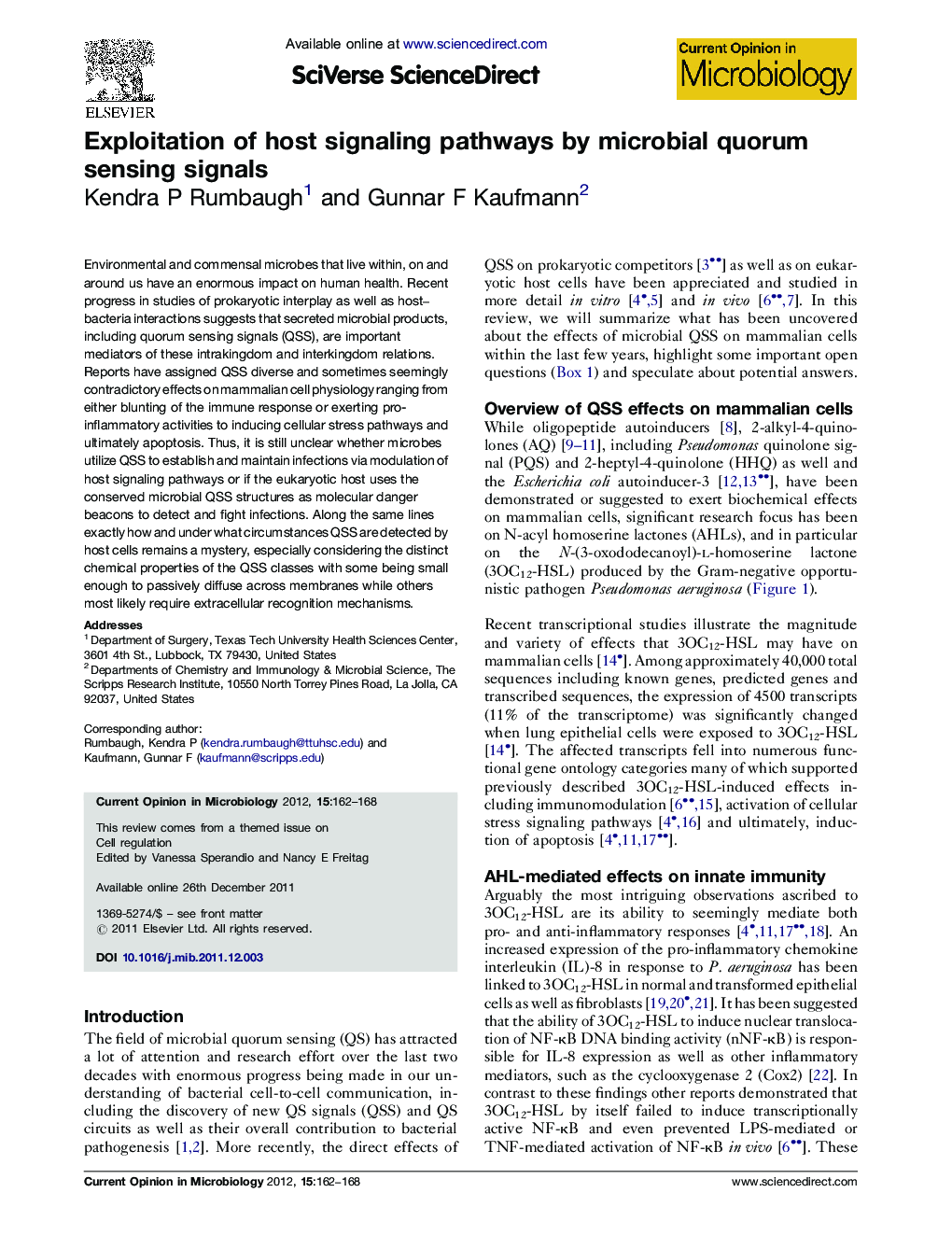| Article ID | Journal | Published Year | Pages | File Type |
|---|---|---|---|---|
| 3399145 | Current Opinion in Microbiology | 2012 | 7 Pages |
Environmental and commensal microbes that live within, on and around us have an enormous impact on human health. Recent progress in studies of prokaryotic interplay as well as host–bacteria interactions suggests that secreted microbial products, including quorum sensing signals (QSS), are important mediators of these intrakingdom and interkingdom relations. Reports have assigned QSS diverse and sometimes seemingly contradictory effects on mammalian cell physiology ranging from either blunting of the immune response or exerting pro-inflammatory activities to inducing cellular stress pathways and ultimately apoptosis. Thus, it is still unclear whether microbes utilize QSS to establish and maintain infections via modulation of host signaling pathways or if the eukaryotic host uses the conserved microbial QSS structures as molecular danger beacons to detect and fight infections. Along the same lines exactly how and under what circumstances QSS are detected by host cells remains a mystery, especially considering the distinct chemical properties of the QSS classes with some being small enough to passively diffuse across membranes while others most likely require extracellular recognition mechanisms.
► Review on microbial/mammal interkingdom signaling. ► Highlights new developments on how microbial quorum sensing signals affect host–cell signaling pathways. ► Summarizes key historic findings.
